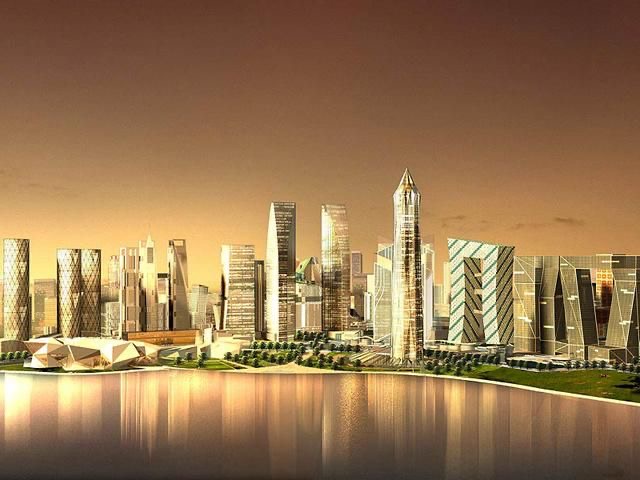Smart Cities have emerged as a potent and transformative influence in the reconfiguration of urban existence. Their primary objective resides in the creation of metropolises that exhibit sustainability in a profoundly effective manner, thereby effectively contending with the formidable trials posed by swift urbanisation. In tandem with the swift march of technological progress and the escalating requisites for judicious resource administration, the notion of Smart Cities has garnered substantial traction.
These cities skilfully use the power of data, connection, and creative thinking to improve the quality of life for their residents while minimising their environmental impact. Smart Cities are able to optimise resource allocation, improve transit systems, fortify community safety, and encourage environmentally conscious behaviour by incorporating innovative technology and infrastructural developments. This complete approach to urban advancement ensures not only the competence and technological sophistication of these communities, but also highlights their level of environmental awareness and liability.

One significant benefit of Smart Cities is the increased efficacy of urban amenities. These metropolitan areas are skilled at watching and controlling a variety of aspects, including vehicle mobility, garbage disposal, and energy usage. They do this by smoothly integrating Internet of Things (IoT) sensors and sensory equipment. Urban strategists and managers are given the ability to make wise decisions, improve resource allocation, and respond quickly to emergencies because to this ongoing collection of real-time data. The results of this paradigm include a noticeable reduction in traffic jams, a superior waste management paradigm, and the wise conservation of energy resources.
One distinguishing feature of smart cities is the focus on sustainability. These cities lessen their carbon footprint by using eco-friendly methods and utilising renewable energy sources. Smart Cities are increasingly incorporating energy-efficient infrastructure like solar panels, wind turbines, and buildings. A more sustainable energy future is also made possible by the development of smart grids, which improve energy distribution and consumption control.
Smart Cities’ primary goals are inclusivity and enhanced quality of life. These cities try to ensure that all residents have equitable access to services and opportunities through digital connectivity and increased mobility options. Smart transportation technologies, such as ride-sharing, electric vehicles, and intelligent public transportation networks, make commuting more pleasant and environmentally beneficial. Furthermore, projects such as smart healthcare and e-governance increase citizen engagement and streamline administrative operations.

Data-driven insights play a critical role in defining Smart Cities’ impact on the urban human experience. These urban enclaves get a deeper understanding of the needs and preferences of its residents by the methodical gathering and careful examination of data drawn from numerous sources, including social media, sensory input, and communal amenities. These informational riches set the stage for improved urban planning, the wise use of resources in a targeted manner, and the detection of emerging trends in the distance. For instance, the analysis of the data may reveal patterns in the production of waste, giving the city the knowledge to plan waste management initiatives with more efficiency.
A critical component of Smart Cities is the concept of the circular economy. These cities are pioneering new ways to reduce waste and promote resource efficiency. Recycling initiatives, up cycling programs, and waste-to-energy systems are integrated into their urban fabric. This approach not only reduces the strain on landfills but also fosters a culture of responsible consumption and production.
Notably, the successful implementation of Smart Cities depends on cooperation between a variety of stakeholders, including government organisations, commercial enterprises, and academic institutions. Public-private partnerships make it possible to pool resources, knowledge, and creative ideas, hastening the creation and application of smart solutions. These partnerships also support an environment where technical developments can flourish, resulting in ongoing progress in urban living.
However, the creation of Smart Cities is not without problems. The enormous amount of information gathered gives rise to privacy and data security concerns. It’s difficult to strike a balance between using data effectively and safeguarding the privacy of citizens. In addition, if the digital divide is not properly addressed, inequality risks getting worse. A top focus is still maintaining access to and benefit from smart services for all locals, regardless of socioeconomic status.
The impact of smart cities on urban life is significant and far-reaching. These urban centres skilfully use technology and data to build sustainable metropolises that place a high value on effectiveness, inclusivity, and improving the quality of life. Smart Cities systematically plot a course toward a more sustainable and intricately intertwined urban trajectory through the meticulous calibration of resource administration, the propagation of sustainable practices, the augmentation of interconnectivity, and the judicious application of data-derived insights. The knowledge and innovations gained from Smart Cities resonate as a blueprint, directing the creation of urban domains that are both liable and fortified against adversity, in an era where global urbanisation continues its ascent.
Sources
- https://skyfii.io/blog/smart-city-technology-benefits#:~:text=A%20smart%20city%20is%20a,a%20sustainable%20and%20efficient%20environment.
- https://www.plantemoran.com/explore-our-thinking/insight/2018/04/thinking-about-becoming-a-smart-city-10-benefits-of-smart-cities#:~:text=A%20smart%20city%20is%20a,edge%20while%20on%20the%20job.
- https://brainly.in/question/50979257#:~:text=A%20Smart%20City%20will%20help,stores%2C%20dry%20cleaning%2C%20etc.
- https://www.mckinsey.com/capabilities/operations/our-insights/smart-cities-digital-solutions-for-a-more-livable-future
- https://www.rbcwealthmanagement.com/en-asia/insights/how-are-smart-cities-meeting-the-challenges-of-urbanization-in-the-21st-century




